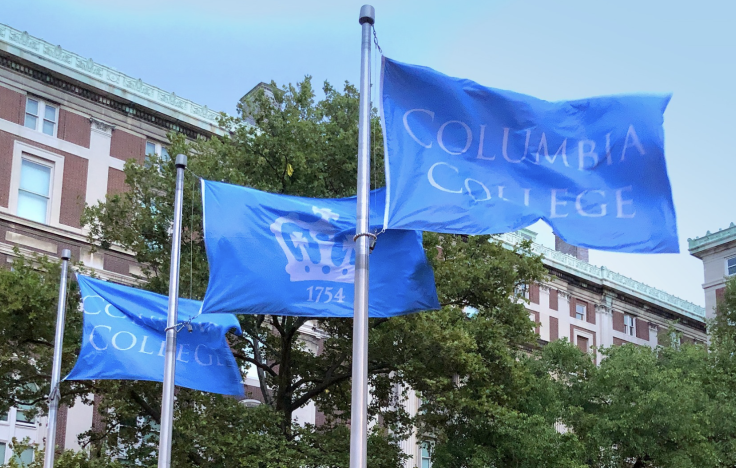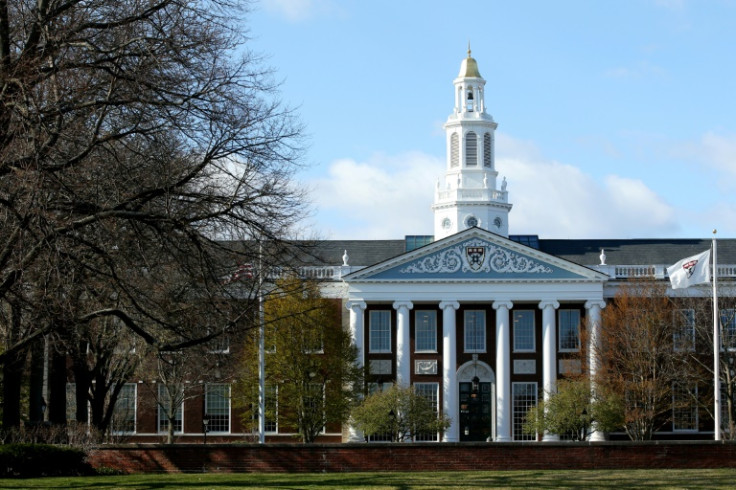Why Is Columbia University Paying A $200 Million Fine? Here's What They Did Wrong According To Trump
The university will pay $200 million over three years, plus $21 million to resolve employment discrimination claims

Columbia University has agreed to pay a $200 million fine, plus an additional $21 million to resolve federal equal employment investigations, following months of scrutiny by the Trump administration.The settlement, one of the largest of its kind, comes after allegations that the university failed to protect Jewish students and breached federal civil rights obligations.
In exchange, the US government has lifted a freeze on nearly $400 million in federal research funding. The agreement includes sweeping policy reforms and independent oversight, marking a pivotal moment in the federal government's oversight of elite universities.
Antisemitism Allegations and Federal Penalties
In March 2025, the Trump administration suspended approximately $400 million in federal grants, citing Columbia University's 'continued inaction' in addressing antisemitic incidents on campus following protests related to the Israel–Gaza conflict. The university was already under investigation by the US Department of Education and the Department of Justice for alleged civil rights violations, alongside workplace discrimination probes led by the Equal Employment Opportunity Commission (EEOC).
To restore access to funding, Columbia agreed to a settlement requiring $200 million in civil rights penalties over three years, plus $21 million to resolve EEOC claims. The university also committed to a series of policy reforms, including new disciplinary procedures, independent oversight, and expanded campus security with arrest powers, according to AP News.
The agreement obliges Columbia to enforce Title VI protections, eliminate race-based factors in admissions and hiring, and adopt the federal definition of antisemitism, which includes some forms of anti-Zionist expression. The university will also submit admissions data for review and appoint new leadership to oversee Middle East studies.
Trump's Response to the Settlement
Education Secretary Linda McMahon described the agreement as a 'seismic shift' that demonstrates the federal government's commitment to holding universities accountable. President Donald Trump praised Columbia's decision to move away from diversity, equity and inclusion (DEI) practices and to prioritise merit-based systems, describing it as 'protecting the civil liberties'.
Some analysts have suggested that the Columbia deal may become a model for how elite universities respond to increased federal oversight. It signals that institutions failing to meet civil rights obligations may face significant financial and reputational consequences.
Debate Over Academic Independence
While Columbia insists the arrangement preserves academic independence, concerns have been raised by faculty and civil liberties groups, according to Reuters. Critics argue that the deal allows the federal government to influence admissions criteria, curriculum design and hiring policies. Some fear that tying research funding to speech-related conduct could undermine institutional freedom, The Washington Post reported.
Supporters of the settlement argue that the reforms are necessary to safeguard vulnerable student communities and ensure that universities remain compliant with national civil rights law.

The settlement also reflects a broader shift in federal education policy. In April 2025, President Trump signed an executive order conditioning research grants on campus protections for Jewish students and eliminating DEI-based criteria in funding applications. The order intensified scrutiny of elite universities and prompted a wave of audits and compliance reviews. Columbia is the first major institution to settle under these new terms, and its response is being closely watched, according to The Jewish News of Northern California.
Columbia's agreement comes as other US universities, including Harvard and the University of Pennsylvania, face similar federal reviews. These investigations are expected to test how institutions respond to concerns around compliance, transparency, and campus governance in the context of wider political and social scrutiny.
© Copyright IBTimes 2025. All rights reserved.





















